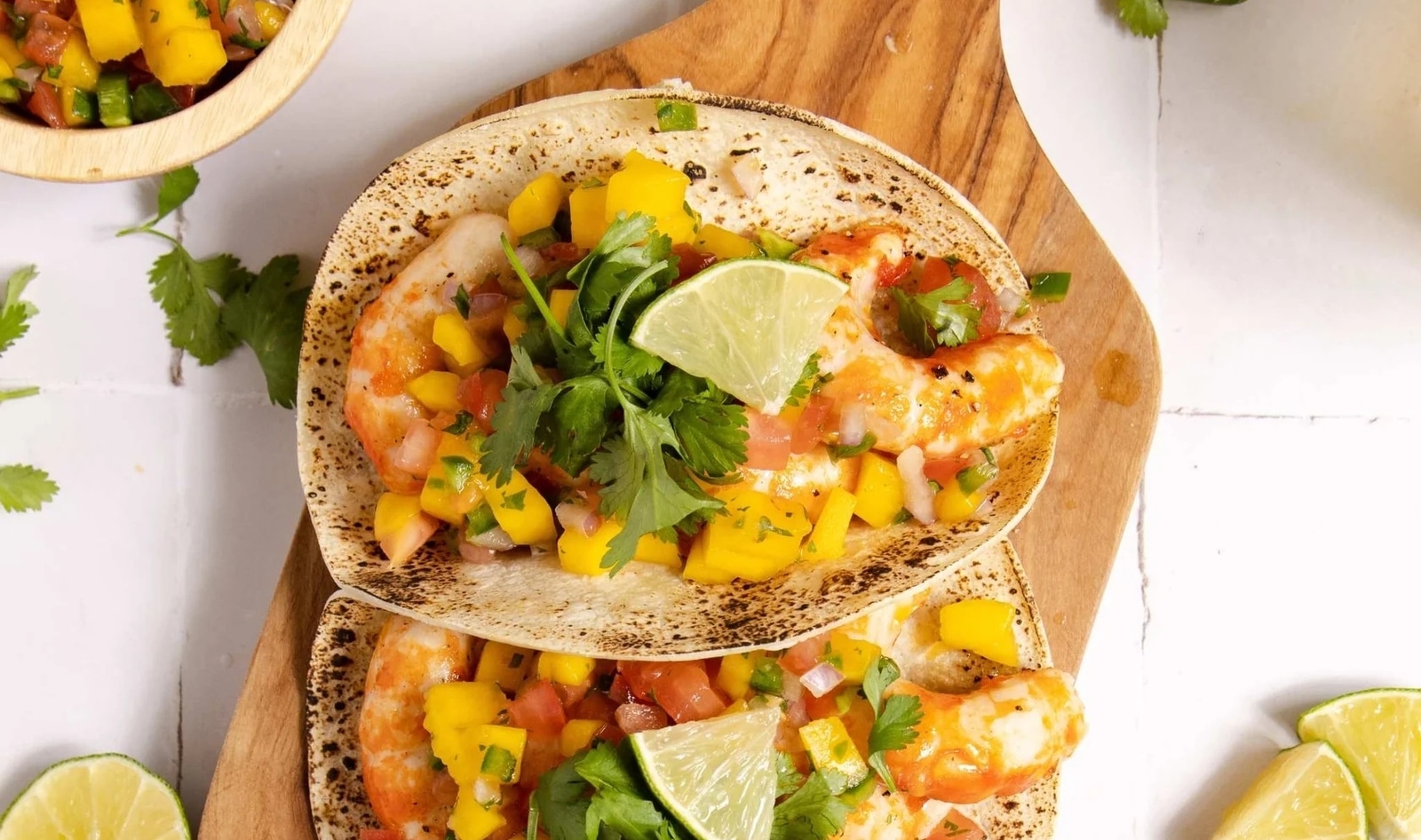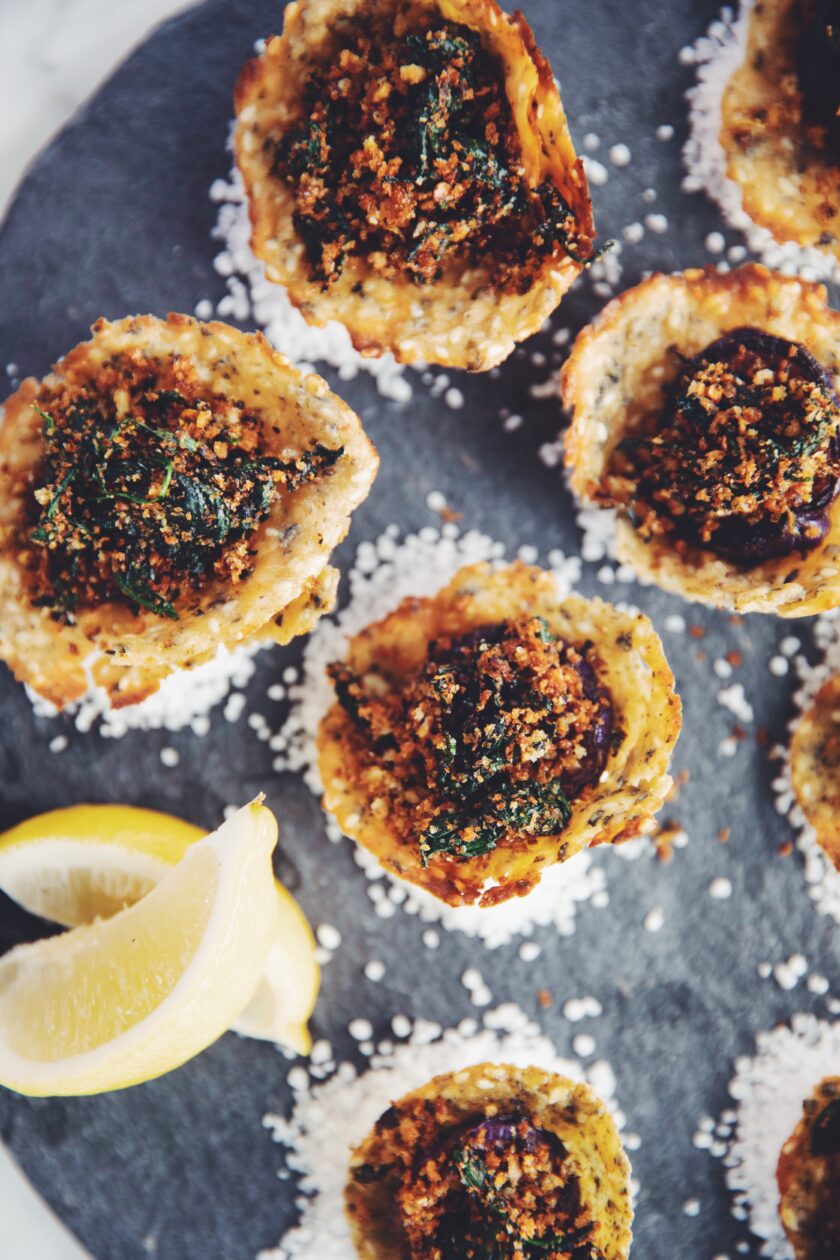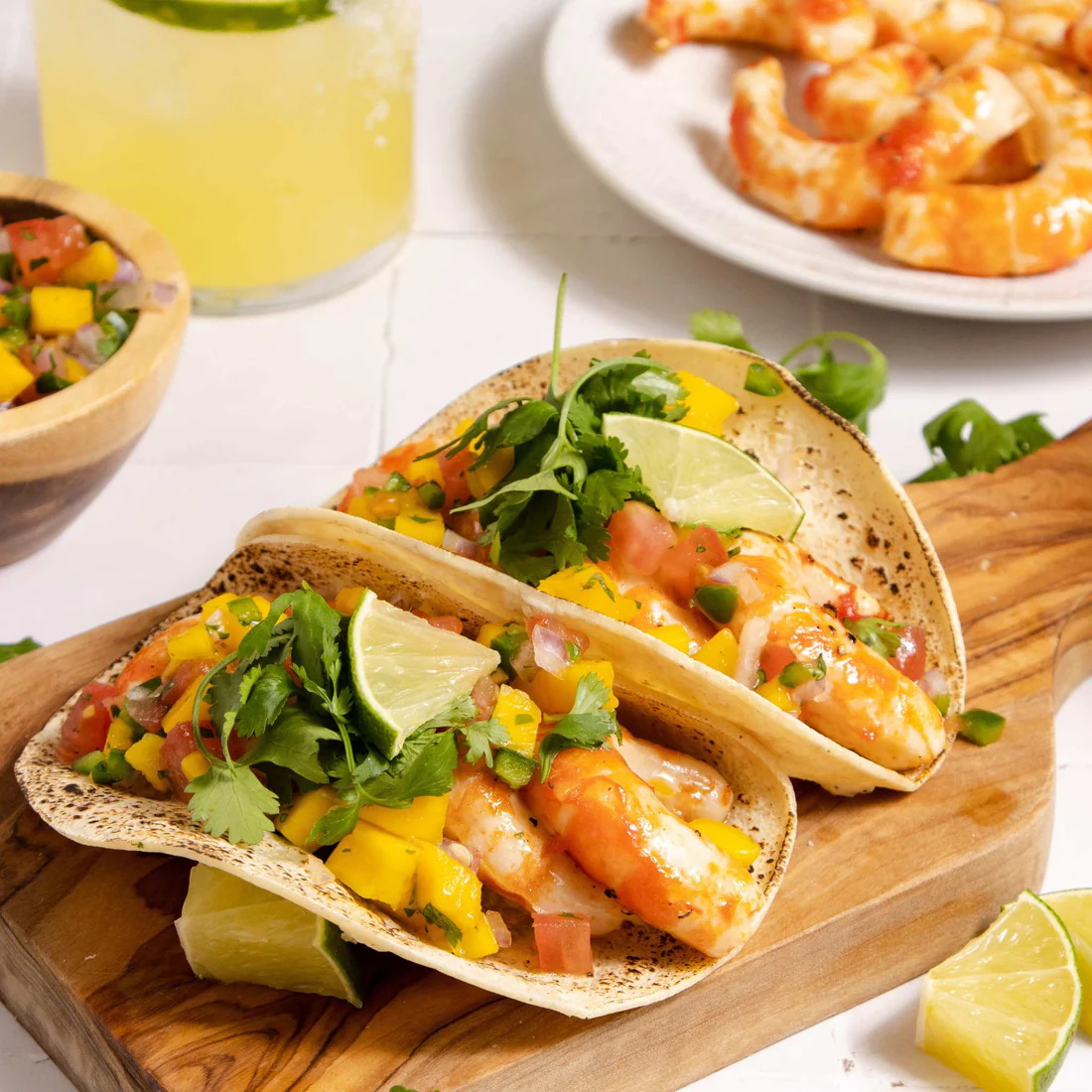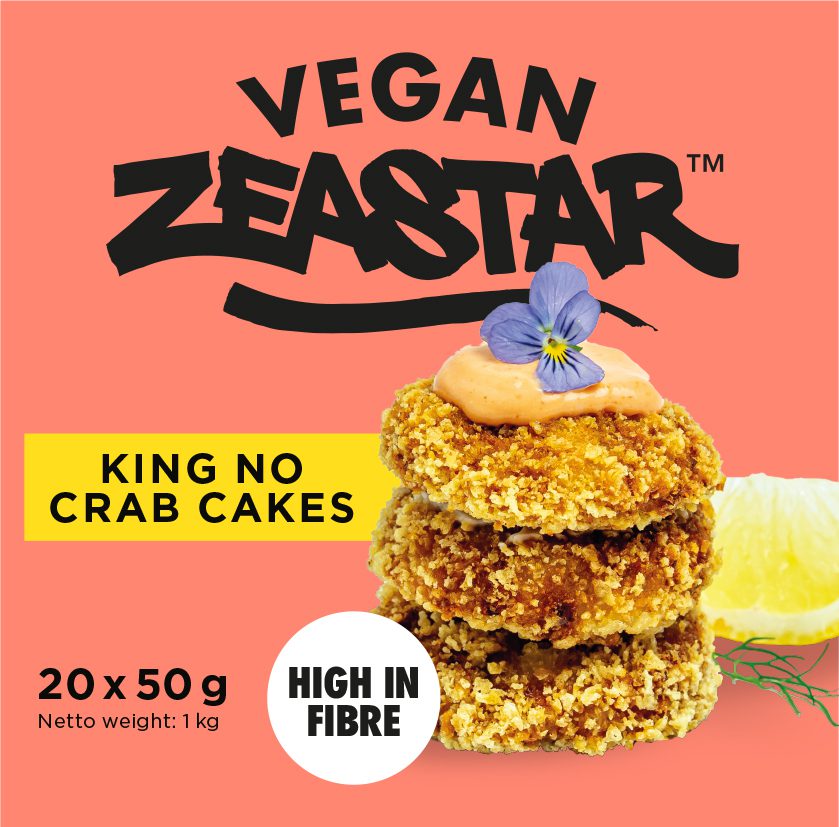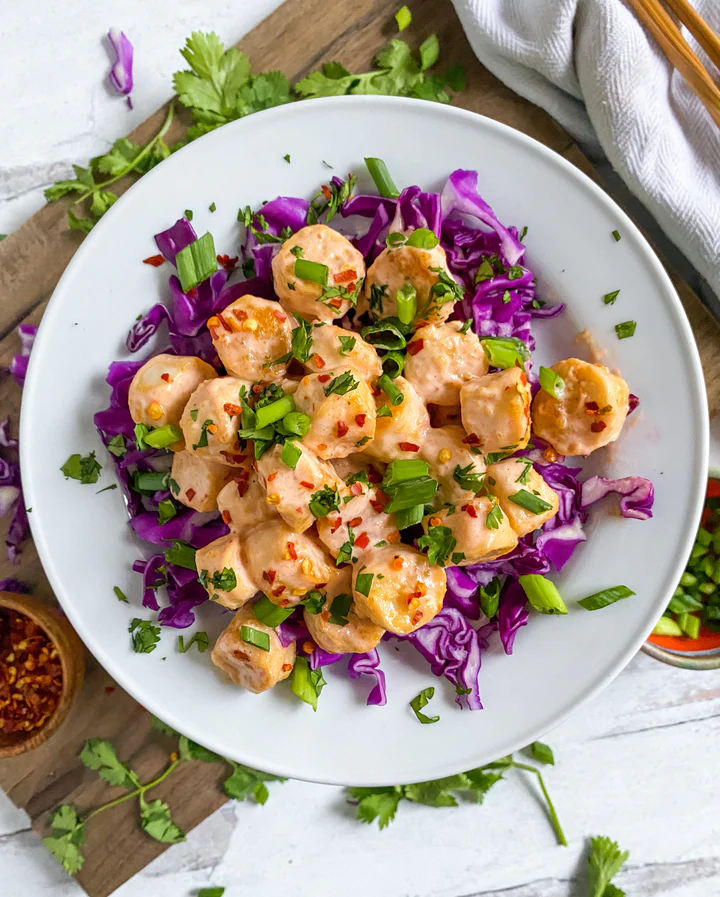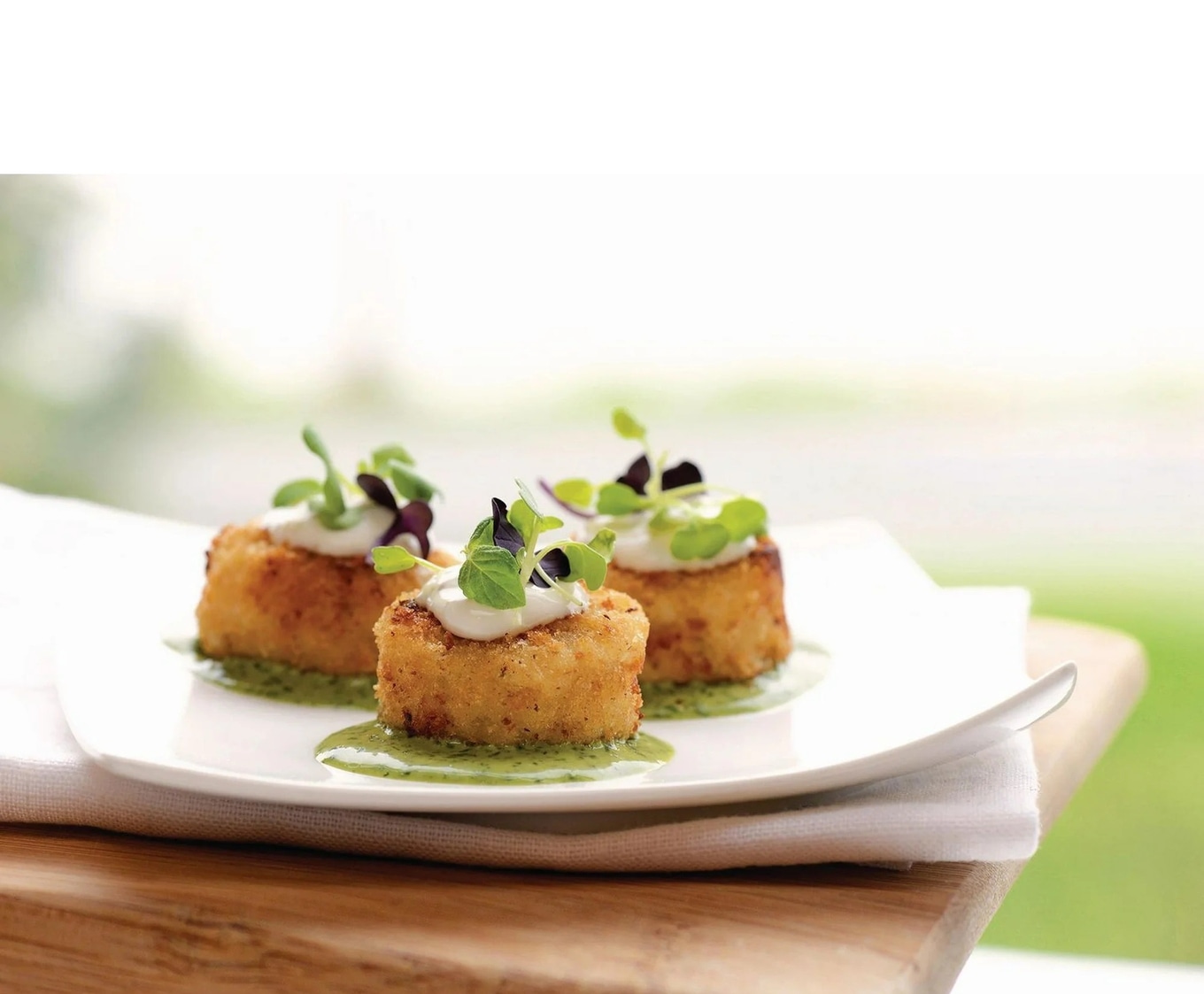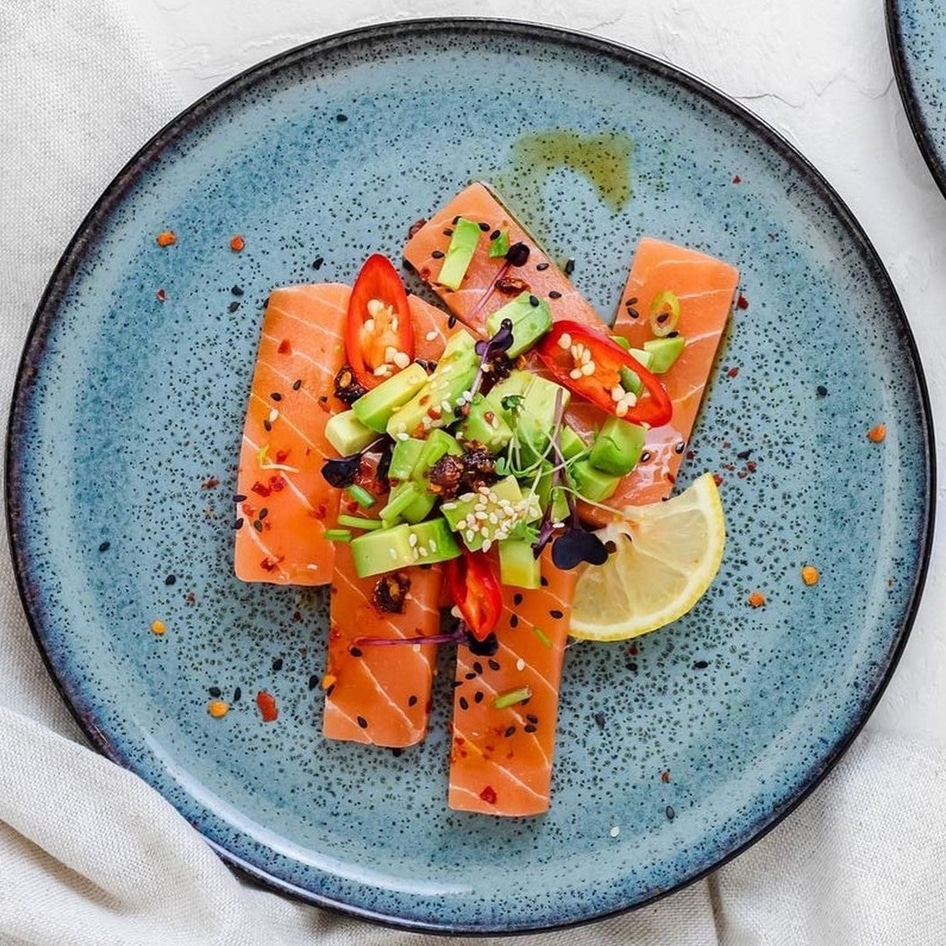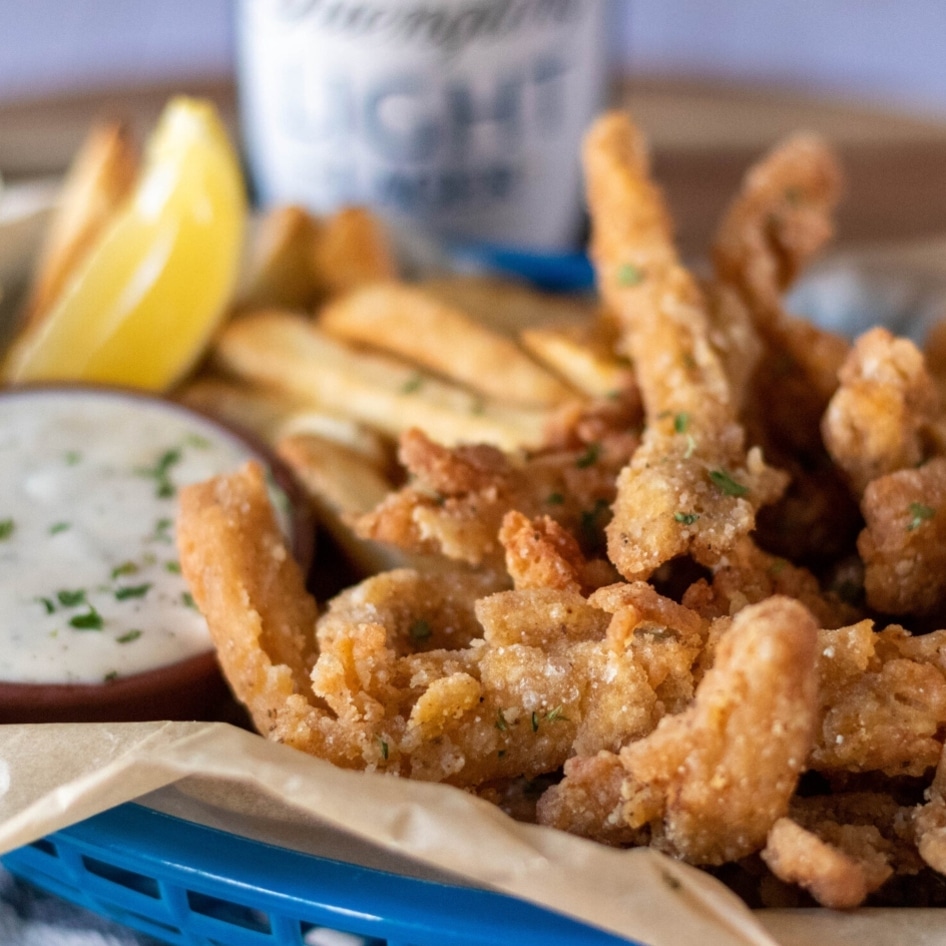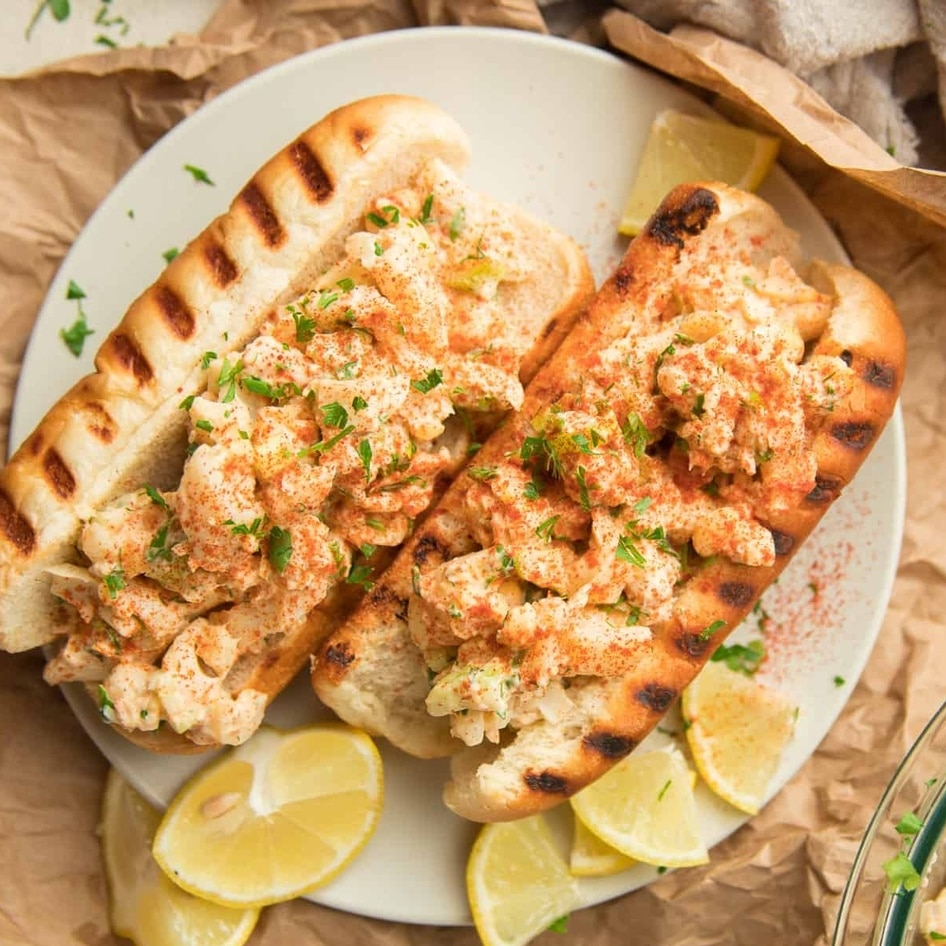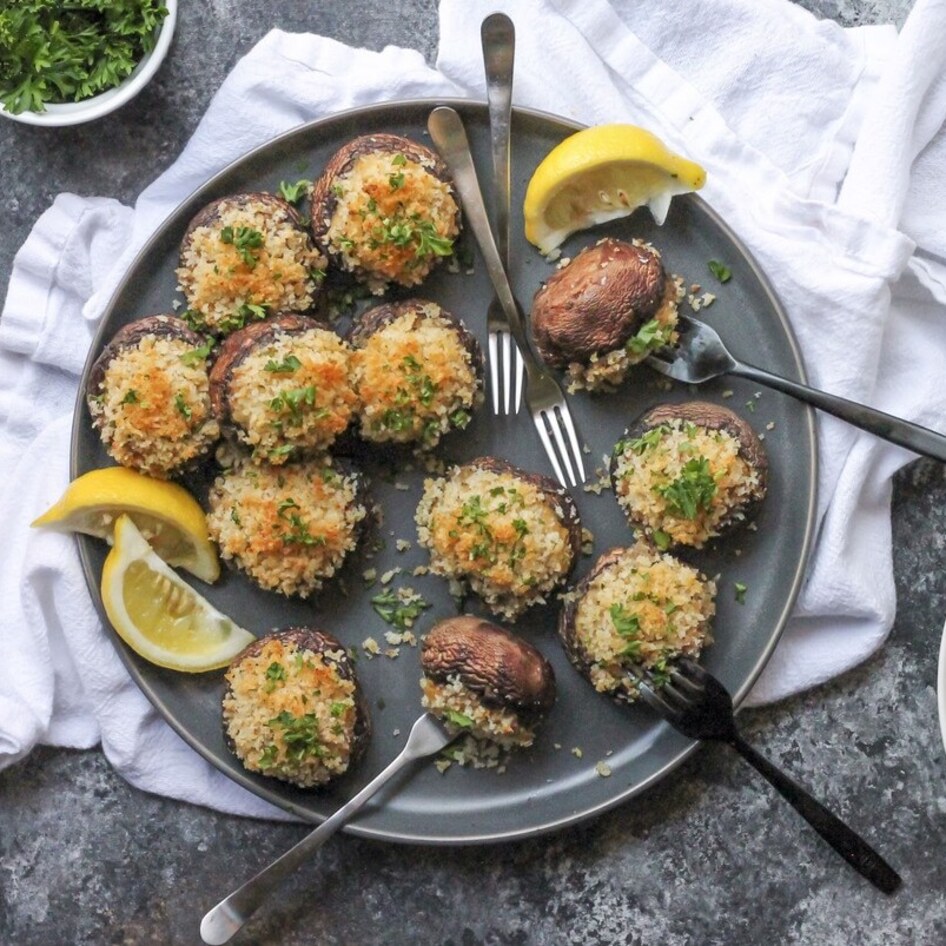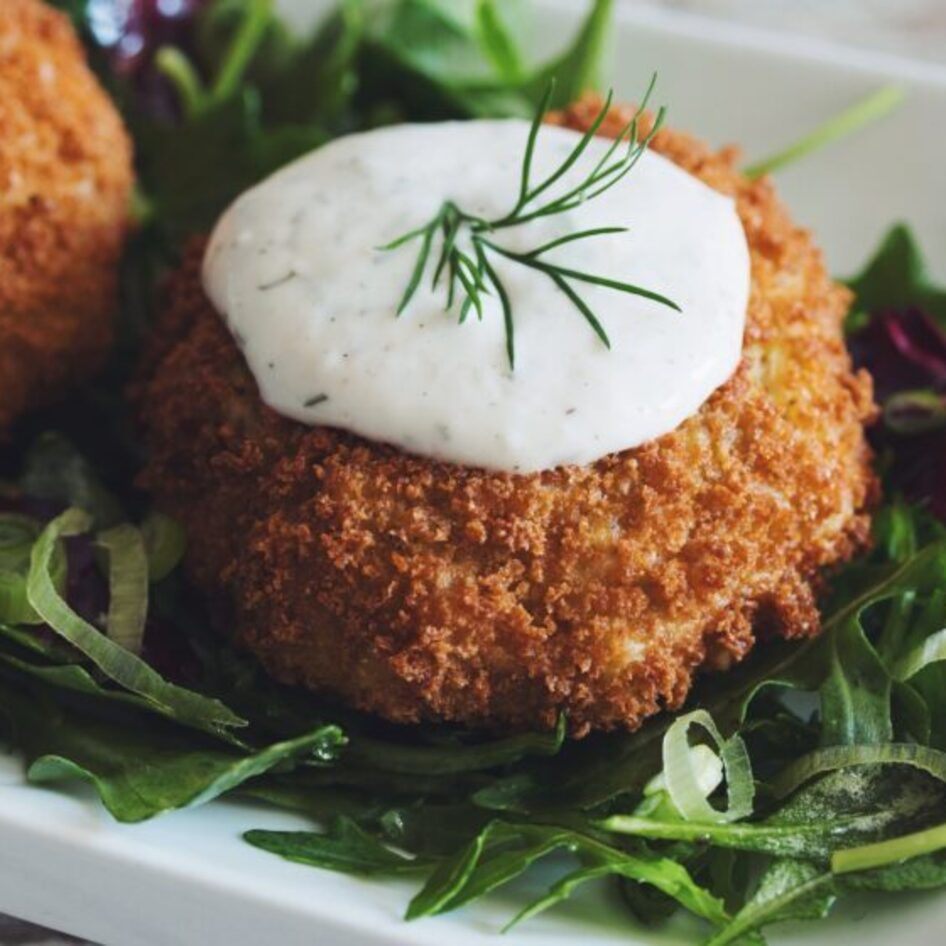Back in 2021, Americans set a brand new record: over the year, the average person consumed around 20.5 pounds of seafood. This was a 1.5-pound increase from 2020 and a major jump from the early 2000s when seafood consumption hovered around 15 to 16 pounds. Today, appetites for seafood are still growing. In 2024, one study from the Alaska Seafood Marketing Institute found that more than half of Americans eat more seafood now than they did two years ago.
While Americans love fish, like salmon and tuna, shellfish is also a big favorite. Shrimp, of course, is number one for most people, but mussels, crab, lobster, clams, and oysters are also growing in popularity. In fact, by 2032, increased demand for seafood is expected to push the global oyster and clam market past a value of $204 billion.
“Increasing consumer awareness of the health benefits associated with seafood consumption has led to a rising demand for these shellfish,” reported Global Market Insights in 2023. “Moreover, the trend toward sustainable and environmentally responsible food choices has boosted the market.”
But how beneficial are shellfish for our health, really? And is consuming them actually a more sustainable food choice? Let’s dive in.
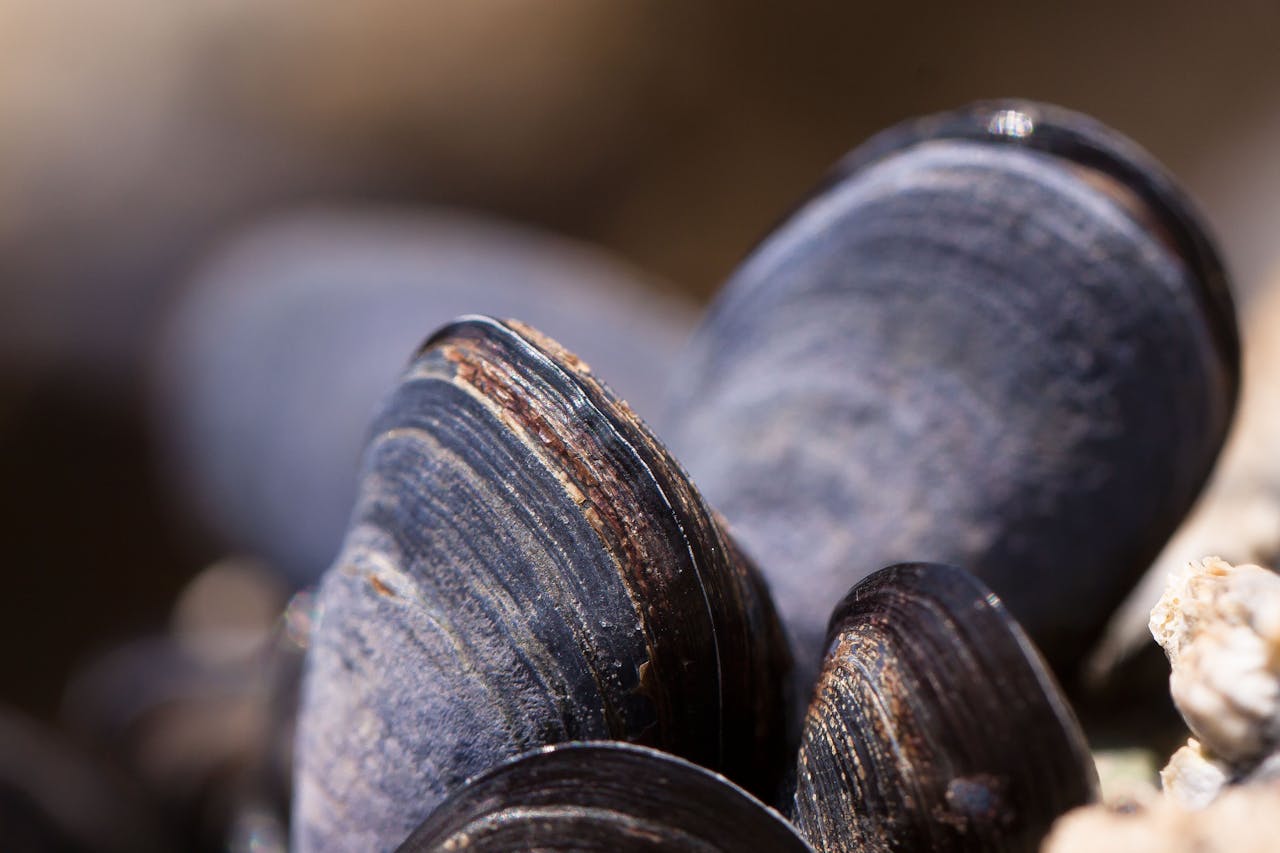 Pixabay
Pixabay
Is it healthy to eat shellfish?
Most shellfish are a nutritious food choice—they’re a source of vitamins, minerals, and fatty acids, and they contain lots of protein. One oyster, for example, contains nine grams of protein, while a cup of mussels contains around 24 grams.
However, examining shellfish’s nutritional content doesn’t give the full picture when it comes to their potential impact on our health. Many shellfish, like oysters, clams, mussels, and scallops are filter feeders, which means they filter sea water to get food. But this also means they are more susceptible to accumulating things like heavy metals and biotoxins, which can be a significant health risk if consumed.
Earlier this year, the US Food and Drug Administration issued an advisory for restaurants and consumers regarding elevated levels of biotoxins in the Oregon and Washington coastlines where shellfish are harvested. These particular biotoxins were associated with an increased risk of paralytic shellfish poisoning (PSP), which can cause symptoms like numbness, tingling, dizziness, and nausea.
PSP isn’t alone—there are four recognized syndromes of shellfish poisoning. The others are amnesic shellfish poisoning, diarrhetic shellfish poisoning, and neurotoxic shellfish poisoning, all of which are linked with harmful algal blooms. An algal bloom is a rapid increase or accumulation of algae in a body of water. They can be harmless, but they can also be dangerous. Some algal blooms produce toxins that are harmful to the environment and to humans.
It’s important to note that shellfish poisoning is rare, however, the conditions that cause biotoxins to pollute the ocean are becoming more common. This is partly due to the climate crisis, which is causing ocean temperatures to rise. One study published in Nature in 2023 reported that algal blooms across 54 large marine ecosystems had increased in frequency by nearly 60 percent.
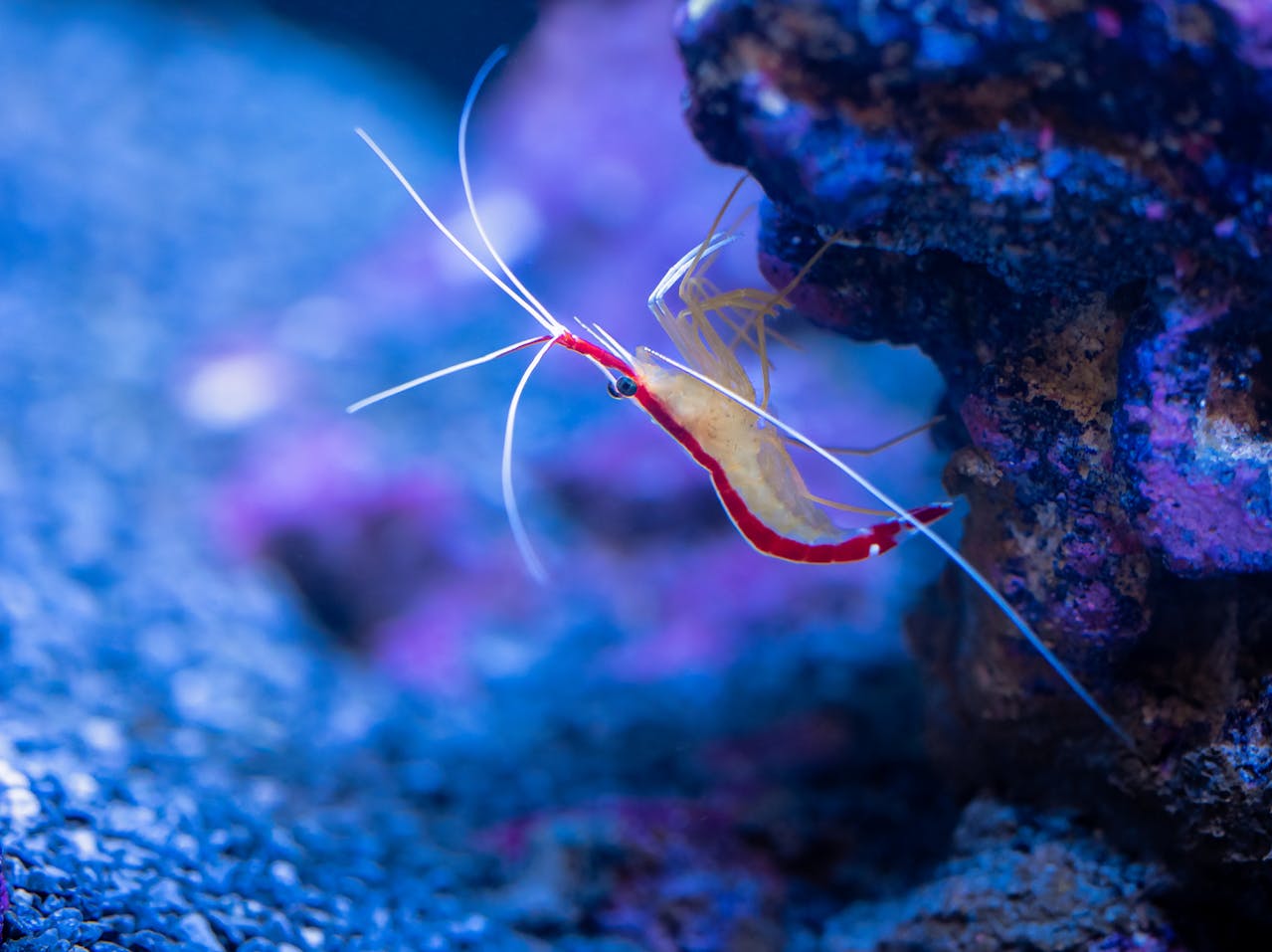 Pexels
Pexels
BECOME A VEGNEWS VIP: Get exclusive product deals, freebies, and perks galore!
Are shellfish good for the environment?
Filter-feeding shellfish are essential for the health of the ocean. One adult oyster, for example, can filter up to 50 gallons of water per day. This helps to improve the clarity of the water and helps to keep nutrient levels balanced. When there is too much nitrogen and phosphorous in the water, harmful algal blooms thrive, but filter feeders help to keep these nutrients under control.
In Yorkshire in the UK, half a million oysters are being reintroduced in a bid to restore the health of the country’s coastal waters with large oyster reefs. The shellfish won’t be farmed—instead, they will be left alone to grow, and in 30 years, researchers hope that each of the oysters will have grown to the size of a dinner plate. According to The Guardian, research suggests that just one hectare of oyster reef can support three tonnes of marine life.
It’s not just filter feeders that benefit the ocean—shellfish like crabs and lobsters also play an important role. They are scavengers, meaning they help clean up the ocean floor by feeding on decaying organic matter. When they do this, they break down and recycle nutrients, preventing a build-up in the ocean.
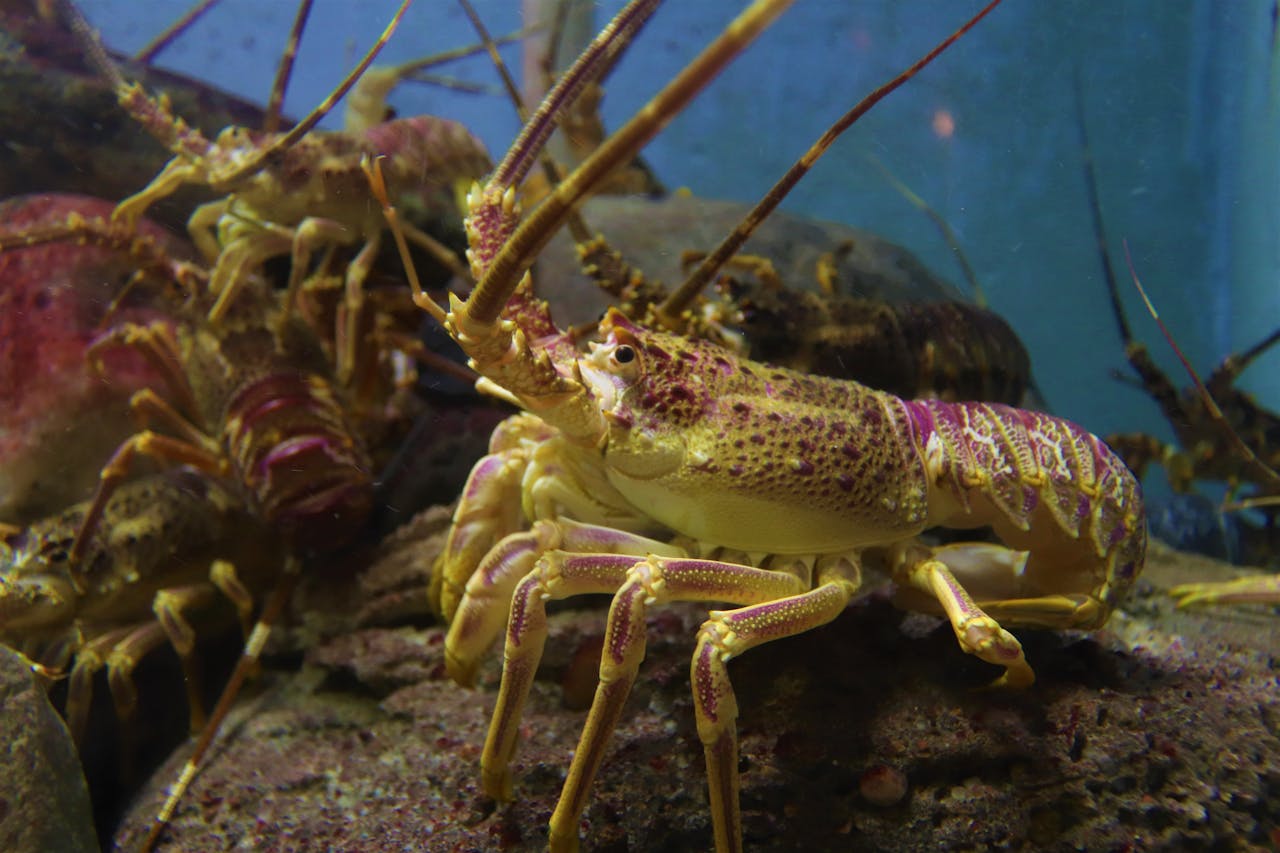 Pexels
Pexels
Is it ok to eat farmed shellfish?
Filter-feeding shellfish tend to be a relatively low-impact animal to farm. They clean the water and, unlike land animals, they don’t require many resources. Farmed shellfish also tend to be more closely monitored for toxins, so they don’t present as much of a risk to human health as wild shellfish.
However, shellfish are not always farmed on their own. Often, they are placed alongside salmon farms, for example, as part of a much bigger underwater aquaculture operation. Salmon farming has been linked with a number of environmental problems, including eutrophication (which leads to harmful algal blooms) and the transmission of diseases to other ocean life.
“I would be concerned that supplementing salmon farms with bivalve farms would make people see the entire enterprise as legitimate: as long as you have a multi-trophic system where everything is integrated, then everything is okay,” said Jeff Sebo, Professor of Environmental Studies at NYU, to Sentient Media.
Farms also pose welfare problems. While the jury is out on whether bivalves, like mussels, can feel pain, it is widely accepted that other shellfish, like crabs and lobsters, do have the capacity to suffer. In 2021, for example, the UK officially recognized lobsters and crabs (and octopus) as sentient beings in an amendment to the Animal Welfare (Sentience) Bill.
The UK’s then Animal Welfare Minister, Lord Zac Goldsmith, said in a statement: “The science is now clear that decapods and cephalopods can feel pain and therefore it is only right they are covered by this vital piece of legislation.”
What is vegan shellfish?
For those who don’t want to eat shellfish but still enjoy the taste, there is a growing vegan seafood market. According to Allied Market Research, by 2031, the plant-based seafood industry is expected to hit $1.3 billion.
“The growth of the global plant-based seafood market is attributed to various factors such as the depletion of natural ocean resources, the rise in global population, the increase in pressure on the global food supply chain, the surge in the prevalence of zoonotic diseases among humans, rise in vegan population, and increase in awareness regarding animal welfare and animal cruelty in farms,” it reported.
Vegan shellfish are a growing part of this market. Just like plant-based sausages and nuggets, vegan shellfish are made with a range of ingredients like pea protein, soy, and mushrooms, and are designed to look, taste, and cook just like real shellfish.
However, the market is still evolving, and while there are many plant-based shrimp and some crab and lobster products to choose from, vegan bivalves aren’t as common. That said, if you’re willing to get creative in the kitchen, you don’t have to miss out.
This recipe from Hot For Food, for example, will walk you through how to make vegan oysters with a mix of ingredients like nori, eggplant, and sesame crackers. And this recipe from PETA shows you how to make plant-based moules-frites with ingredients like potatoes, seaweed, and shiitake mushrooms.
Where to buy vegan shellfish: 5 brands to try
If you want to keep it simple by ordering your vegan shellfish to your front door, we don’t blame you. Below, we’ve picked out a few of our go-to vegan shellfish brands that specialize in everything from vegan lobster to shrimp to crab.
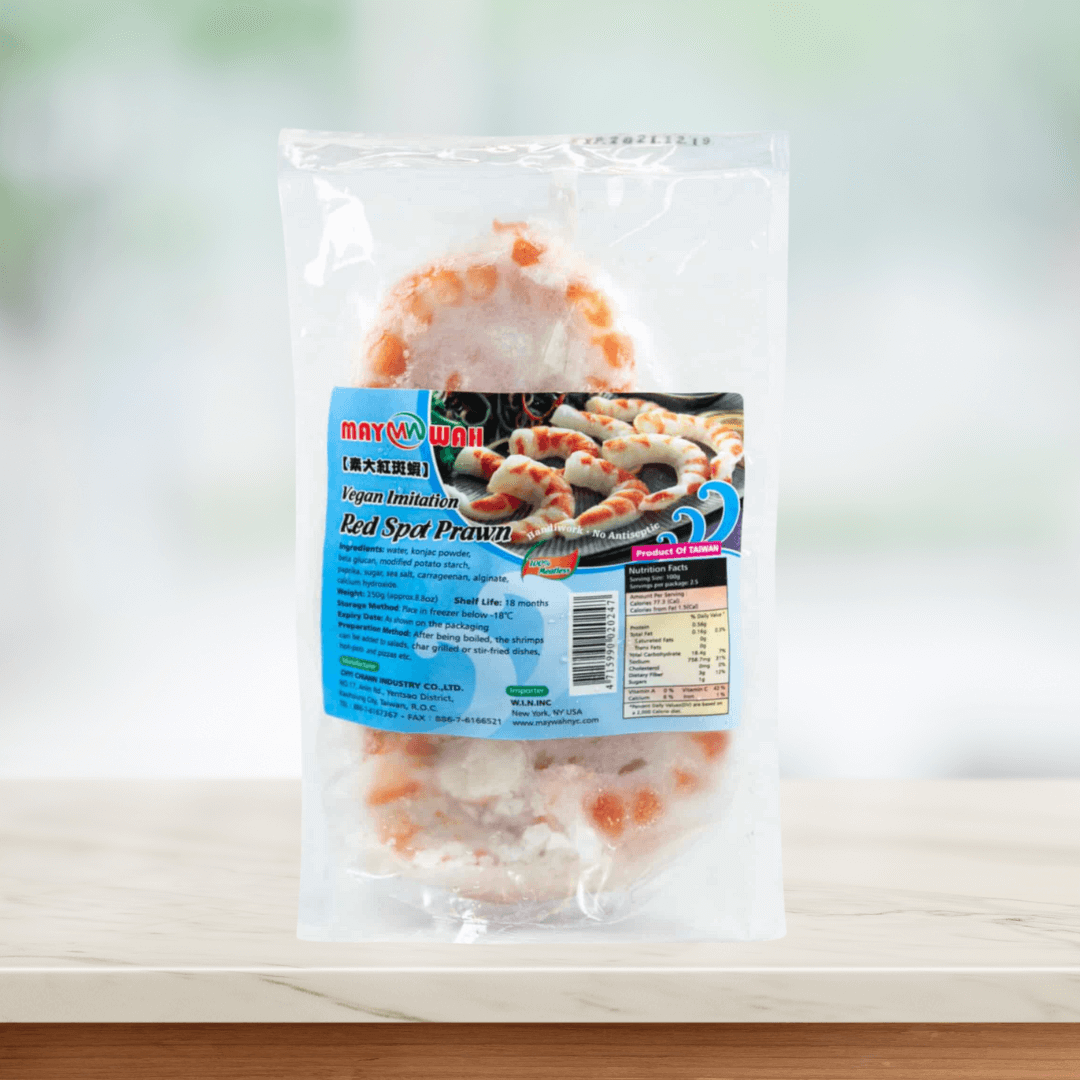
Lily’s Vegan Pantry
1 Lily’s Vegan Pantry
Formerly known as May Wah Vegetarian Market, Lily’s Vegan Pantry offers several plant-based shellfish products, including shrimp rolls, red spot prawns, lobster, abalone, scallops, and crab steaks. Each is made with a handful of simple ingredients, including konjac powder, soybean protein, and seaweed extract.
Writing about the brand’s scallops, one reviewer said: “I’ve made these many times with a lemon pasta florentine and they are delicious.” Another said of the vegan red spot prawns: “Really tasty and the customer service is above and beyond. Buying from Lily’s is like walking down the street to your favorite store.”
Find out more
2 BeLeaf
BeLeaf’s plant-based shrimp—made with a combination of ingredients like konjac powder, potato extract, seaweed, and cassava starch—is well worth a taste. It has been honored three times in the Best Plant-Based Seafood category at the World Plant-Based Awards, and for good reason. “I followed the preparation instructions and the texture and flavor were amazing. I ate a few after blanching and they were delicious,” said one reviewer. Another said: “The shrimp tastes phenomenal and cooks very easily.” The brand also specializes in vegan jerky, sushi, bacon, and even a plant-based sunnyside-up egg.
Find out more
3 Vegan Zeastar
Vegan Zeastar is dedicated to creating “unique and revolutionary” plant-based seafood. The brand, which is owned by Dutch company Vegan Finest Foods, has an extensive product range, which includes a few shellfish options. There are crab cakes, for example, and a few different vegan shrimp varieties, including chili and crispy coconut.
One Abillion reviewer said of the shrimp: “I have to admit, a very nice surprise. The consistency is really the same, perhaps the taste of the sea is not so strong, but I must say that I found them excellent!” Another said: “So, so good! they look and smell the same and they taste exactly the same, too!”
Find out more
4 The Plant Based Seafood Co
The clue is in the name, but this Virginia-based brand is all about plant-based seafood. Its delicious range of products includes vegan scallops, coconut shrimp, and crab cakes, all of which have received plenty of rave reviews from consumers. For example, one impressed Abillion user said of the brand’s crab cakes: “I never had non-vegan crab cakes so I cannot attest to the similarities, but I can state that these were pretty tasty and definitively fishy!”
Find out more
5Gardein
Gardein is one of the most popular plant-based meat brands in the US, known for its extensive range of tasty products like vegan chicken fillets, spicy sausages, and meatballs. But the much-loved brand also has a handful of vegan seafood products, too, including mini crab cakes. “My favorite Gardein product by far,” said one reviewer. “Amazing texture, easy on my stomach, and good taste.” Another added: Outstanding little bites of vegan goodness. Highly recommend them.”
Find out more
For more plant-based stories like this, read:
JUMP TO ... Latest News | Recipes | Guides | Health | Subscribe
Here at VegNews, we live and breathe the plant-based lifestyle, and only recommend products we feel make our lives amazing. Occasionally, articles may include shopping links where we might earn a small commission, but in no way does this effect the editorial integrity of VegNews.

